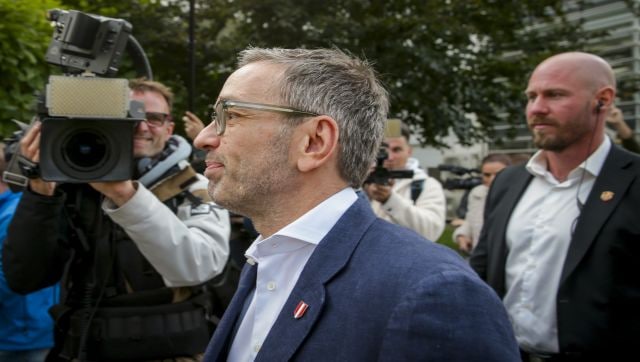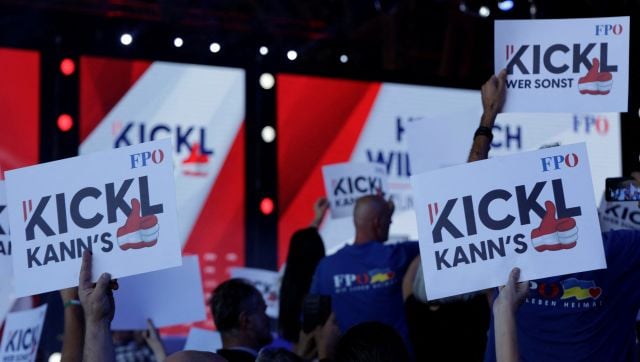In PR college, they will tell you that the press office of a government department or other big organisation is ready to provide truthful information in response to questions. They will carefully present the information to show themselves in the best light, and they will avoid mentioning embarassing details, but they should not tell you lies.
In reality, the opposite is often true. They will tell outrageous and unbelievable lies, or more commonly, competely ignore your questions. One of the remarkable things this writer has discovered is that they will often not even deny direct allegations of criminality! This should be encouraging to those fearful of lawsuits. If your allegations are true, and serious enough, they will not sue. They’ll just try to destroy you in other ways.
The following six stages are proposed:
Phase 1: Ignore or mimic incompetence. They don’t answer the phone, even after repeated calls. Their public phone number is out of service. They will ignore emails, or they are bounced back to you. A pro-life organisation took a month of daily calls and emails before they answered. The Irish Defence Forces and a dozen sundry civil servants did not reply to a lowball question about preparations for a Rwandan-style massacre of us ethnic Irish by ungrateful foreigners. The questions were based ón an interview by ex-Irish Times journalist John Waters with ex-US Army Michael Yon. Apparently a series of super secret shipping containers have turned up on Irish Army bases. Personnel are threatened and warned not to ask questions, or mention them. One Irish Army guy turned up dead, recently. The possibility is that the containers are filled with machetes, or explosives or high tech EMF weaponry.
Even if the rumours are true, it would be easy to issue a few soothing plausible lines, but they don’t bother. The fact that they don’t reply at all could meán that the rumours are not true, but that they are happy to let us think they are true, to make us afraid. Fearful people are easier to manipulate.
This is a very clever tactic, especially for controversial topics. Some questions are so pointed and precise that even to acknowledge they were asked, puts the press officer in a potentially lethal position. If the top boss knows that Junior has been asked about that very touchy subject, then he knows that Junior knows about that touchy topic. To save time and trouble, might it not be simpler and cheaper to send Junior to sleep with the fishes? Knowledge is power, but it can also be fatal.
Phase 2: Fake professional and competent behaviour. The PR man will give the appearance of taking your questions seriously and promise to get back to you within a reasonable time. He will have time for general chit-chat and will attempt to build rapport with you. He probably will never actually get back to you, but if he does, it will probably be a phase three answer.
Phase 3. Word salad. The PR man will give what he says is an answer to your questions. The information may well be true, but it does not answer the question. He will smilingly insist that the information is an answer to your question and will happily spend time talking and attempting to distract you.
These three phases are designed to discourage you. “They have a whole department of PR people, and they won’t even answer a simple question,” you might think. “They are giving me the run around. This is a pointless exercise.”
It is remarkable that they will refuse to deny serious allegations against themselves. Is it some type of weird game for them, to see how blatantly they can do evil things and get away with it? If they are asked, and do not deny them, presumably this is some protection legally if the questioner then repeats the allegations publicly.
It’s true that one contact with the Press Office asking an awkward question will not achieve much. But as the Zionists are well aware, a thousand people asking the same question, by letter, by phone or in person will put pyschological pressure on the PR boys who have to listen to the question. President Truman, in his memoirs, complained bitterly about the incessant stream of Zionists meeting him and making aggressive demands. (He complied with everything they asked him). Humza Yousef, the ethnic Pakistani former Prime Minister of Scotland, was the target of tens of thousands of complaints of racism because he complained that there were too many White people in Scottish civil service. He is now complaining about feeling unwelcome, and is publicly talking about leaving the UK. Not quite a victory, but perhaps the start of a victory?
Phase 4: Intimidation through mockery or direct threats. When asking Garda Press Office about the 200 refugee children who went missing from State care recently (https://www.thejournal.ie/noteworthy-investigation-missing-children-in-case-ogorman-6250375-Dec2023/), a PR man said in a kindly voice: Be careful…The PR man in the Irish Department of Children and Refugees is a Yorkshire man with the very Jewish name of Daniel Poyner. His response to the question about the missing refugee children, was to laugh. Hahaha. Nothing shows a man’s character more clearly than what he finds amusing. The interweb rumours are that the children are being sold into Rochdale-style prostitution, and then sold ón for blood, organs and adrenochrome. What kind of person thinks this is a laughing matter?
When asked his ethnic background, Daniel claimed to be highly offended, said it was irrelevant and refused to say. When asked if he was Jewish, he hung up the phone. Is it a touchy subject?
Phase 5: Fear and panic. The Press Office shows fear. It’s very rare to reach this level, but it is very funny for the persistent questioner to hear the fear in their voices.
The Garda Press Office claimed this writer had harassed them for several days, and they were refusing to deal with him. With a view to the recording of the conversation, they repeatedly asked: Do you understand? This was repeatedly answered with the question: Where are the missing refugee children? They hung up the phone. Gotcha!
The PR boys are aware of how well protected they are, and how well controlled society is. They know how infiltrated the opposition is. They feel they are untouchable, as long as they bend the knee to their masters, and avoid getting beaten to death on the street by enraged members of the general public.
They are only afraid of one thing: that their masters will cut them loose and sacrifice them to the wolves. Part of their job is to stop people asking awkward questions. If you persist in asking the question, then they have failed in their task, and their masters will not be happy.
What happens to PR men who don’t stop the awkward questioner? A former Sinn Fein PR man tried to commit suicide recently: he is facing charges of trying to persuade young teenage girls to have sex with him. A young journalist with Raidió na Gaeltachta was jailed last year. He had an experience common in these modern times to all us handsome, heterosexual men-about-town: After a half hour’s talking with a pretty lady, the lady wants to have sex with him. He obliges, and is horrified when she turns up later, all tears, vengeance and spite, swearing she was raped. The court found him guilty, and he has lost his job, his liberty and his reputation amongst those who believe the court ruled correctly. It’s possible that his only crime was to ask an awkward question, and that the lady was a honey trap.
It must be stressed that both Phase 4 and 5 are potentially dangerous for the questioner. You are making them angry, and they may seek to take revenge on you. This writer has five geese. He found a dead goose in his poultry run, and counted the remaining geese. Still five geese. Either the extra goose made it’s own way into the run and then died, or some poor local alcoholic was slipped a couple of hundred bucks to put the goose there, in a feeble attempt to intimidate.
The phases are not necessarily sequential. Edel McGinley of the NGO Immigrant Council of Ireland, started on Level Four, when asked if she was involved in the missing refugee children scandal. She accused this writer of being mad, claimed not to understand what the question was, and of not knowing about any missing refugee children. She briefly reached Level Five (Fear), and then flipped back down to Level Two: fake professionalism. Of two dozen politicians and officials asked if they were involved in kidnapping refugee children and selling them for body parts, blood and adrenochrome, she was the only one to actually deny being involved in “what you are taking about”. She also admitted that she had heard that some refugee children had gone missing, but didn’t seem either upset or interested. Her salary gets paid no matter how many immigrant kids go missing, of course.
If you want to do a little armchair activism, you could do worse than carry on the questions here outlined. It’s risky, but great fun! Daniel Poyner (+ 353 1 6473000 or 6473153 or 5393801) and the Department of Children PR boys are at Phase 4: Intimidation and mockery. If you are skilled, persistent and can show that you are aware — perfectly legally — of details of their personal lives you can probably nudge them into Phase 5: Fear and panic.
The Garda Press Office, despite their power, technology and access to secrets, are already afraid, when asked the simple question: Where are the cute little African and Asian missing refugee children? (tel: +353 1 662032 or /35/37/71/72. Andrew McLindon is the top press dog).
Fiach and Dylan are two homosexual sounding, but basically decent men who work there, who are clearly having trouble with their nerves, and maybe even their consciences. What will happen to them if they have to field another hundred calls asking what happened to the cute little missing refugee children?
There is only one way for them to go:
Phase 6: Total mental breakdown. This is a small victory, as they will be immediately replaced by new worker drones. But it will create tension amongst the PR team, and possibly some will leak crucial information about the missing refugee children to the resistance…
Beir Bua!








